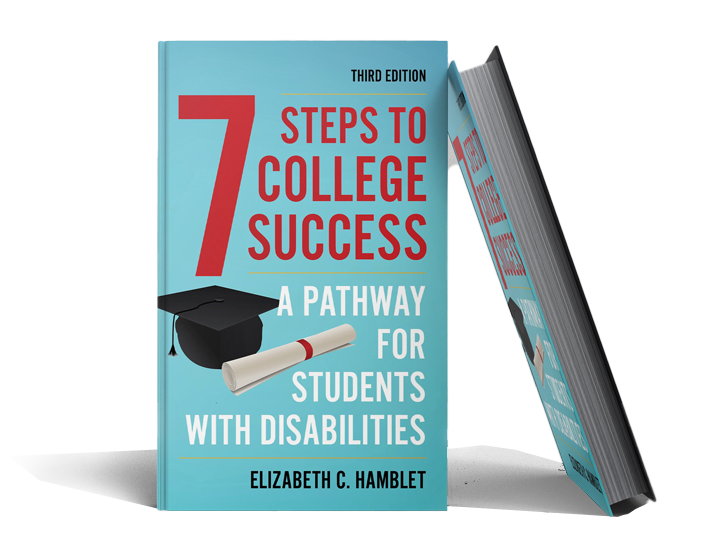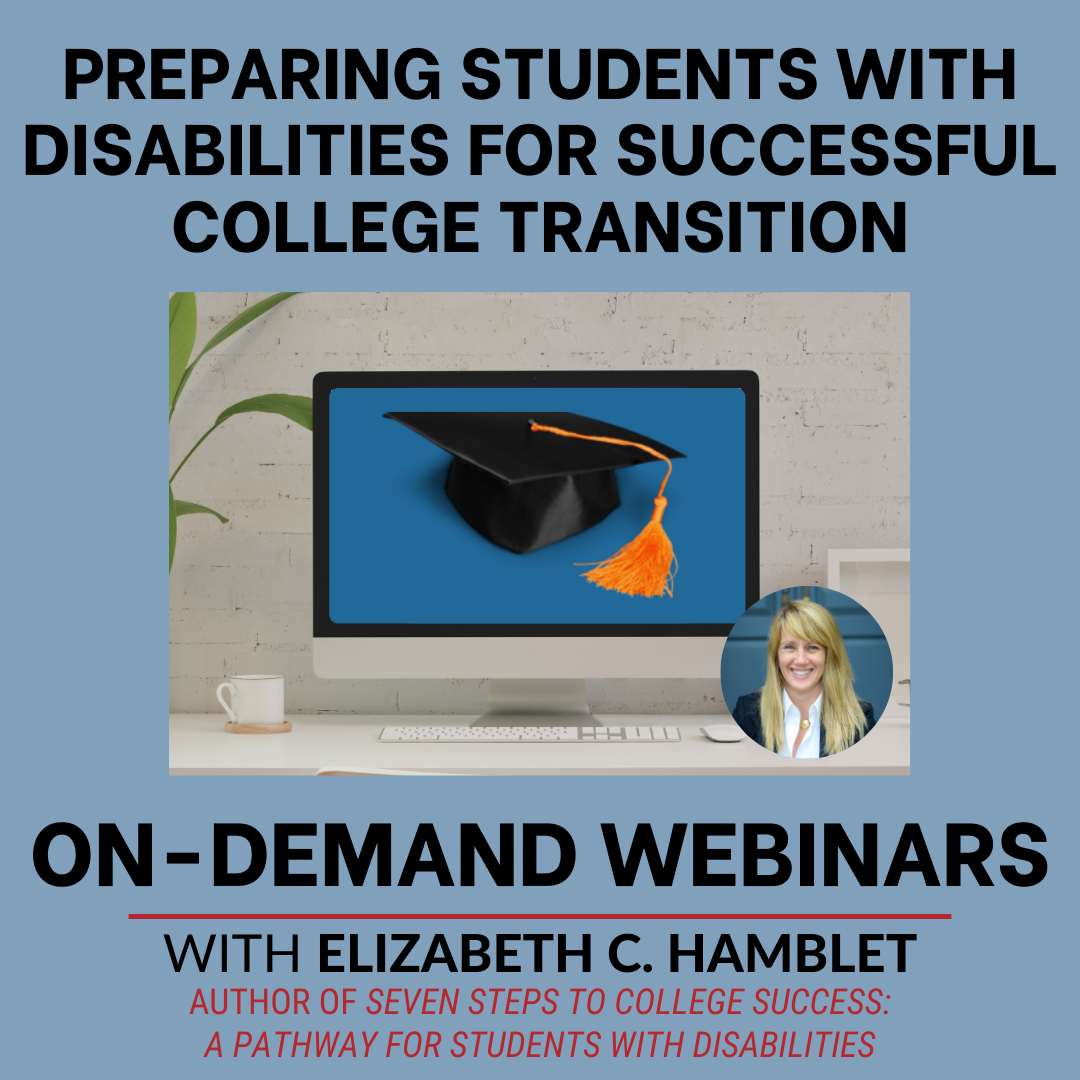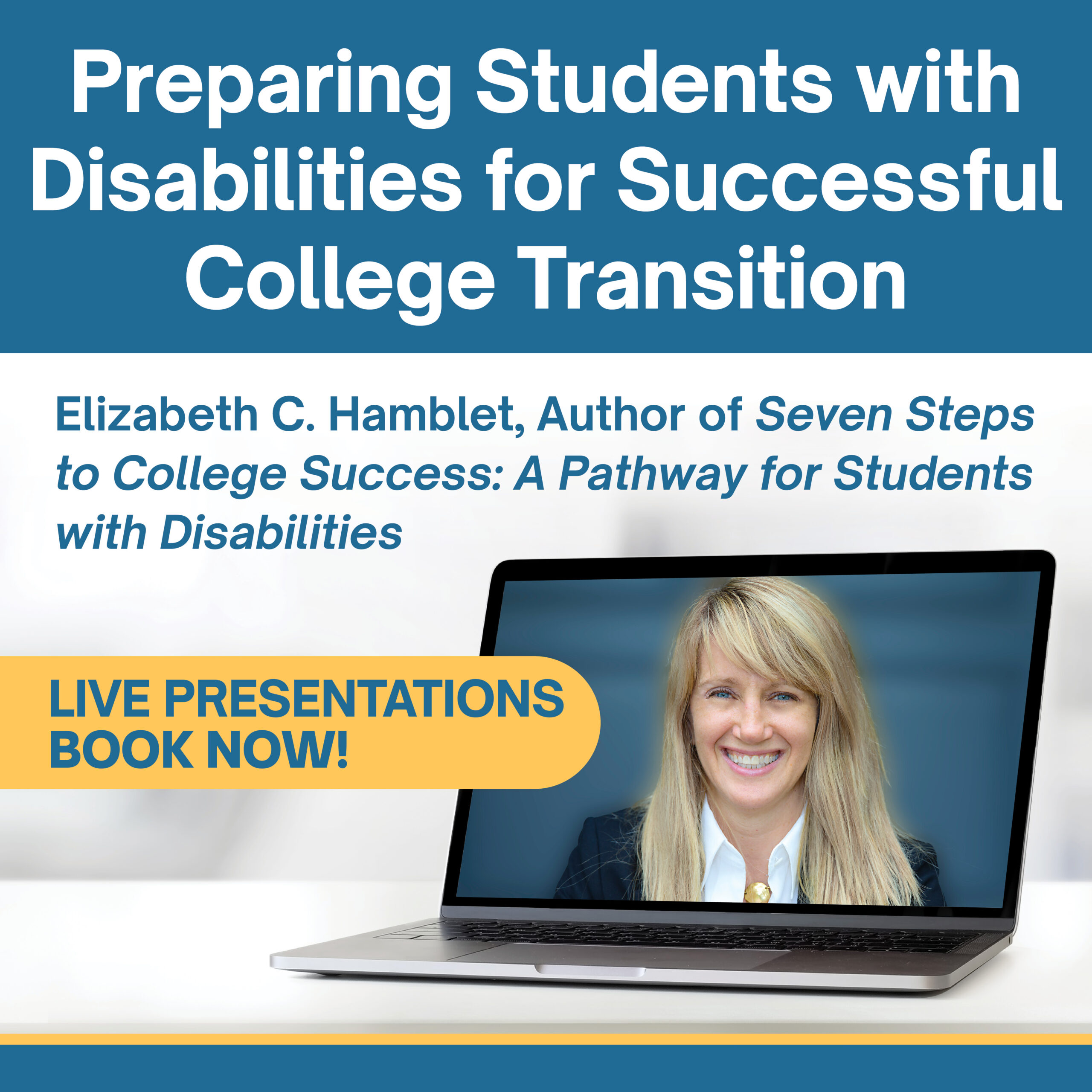Introduction
When I was developing my second book (see ordering information for the third edition on this page), I had two conversations specifically about the idea of success. Those discussions coalesced into the preface of the book. Now that it’s out of print, I can share the ideas here.
I had asked college disability services directors what makes students with disabilities successful at college. One (Ward Newmeyer, who is now retired), responded, ““How do you define success?”
It was such an excellent question.
The popular press and social media are full of inspiring stories of entrepreneurs, scientists, performers, and others who have achieved success at a level that has garnered them worldwide recognition. It is important for students with disabilities to see the potential for them to achieve great things.
But as Dylan Redford (another interviewee) said, these success narratives can be a double-edged sword. Redford expressed concern that when stories exclusively focus on people who have achieved the highest levels in their chosen field, students might take away from them the idea that anything less than reaching the top means that they have failed in some way.
Redford said that―even if no one is actually telling them to do it― some individuals with disabilities who have achieved some modicum of success may feel compelled to pursue a level of achievement that isn’t aligned with their own interests in order to provide a model for others. When he was high school senior, he was featured in a documentary his father made about dyslexia. His segment focused on the process of getting documentation so he could request accommodations at college.
Redford said this about his own college experience:
I wonder how much such success narratives guided my decision to go―not just to Middlebury―but to college in general. I felt the tug of wanting to do certain things that matched the “underdog” narratives that are so often a feature of the stories of successful individuals with disabilities. When it was time to consider colleges, this notion of “going against the grain,” (i.e., of being a student who struggled with reading and writing attending a highly selective school that emphasized these skills) did influence my decision making. I thought that I was supposed to go to the best college I could get into even if it wasn’t a good fit.
I am an artist, and I rejected the idea of going to an art school because playing to my strengths seemed like “giving up.” I was aware of the “narrative” of being a student with challenges going to Middlebury and felt compelled to keep pushing against expectations. I thought that to do anything else would be to go easy on myself because “proving yourself” is characteristic of these success narratives; you accept the things you’re not going to be good at and put yourself in an environment that forces you to prove that you can pass.
Although Redford acknowledged that the particulars of his path are unique, said he thought that his experiences had relevance for students who – like him – have embraced their learning disability, achieved academic success, and have had the experience of being held up as examples to others. He thought they also might be relatable to students who simply feel an obligation to achieve something great because of the media messages they see. Redford encouraged students to find a college where they will be comfortable and happy and have an opportunity to pursue their interests.
He also encouraged adults working with students to convey the message that the notion of success should be up to the individual student. Additionally, Redford said that in trying to inspire students, adults should point to a wider range of success stories so that students get the message that being happy in whatever job appeals to them is just as much an example of success as being a well-known entrepreneur or artist.
To return to Newmeyer’s question―what does college “success” mean? Does it mean completing a degree at the most selective school with the highest possible grade point average? I hope the message my work conveys is much more inclusive―that success for students means attending a college which suits them and enjoying the experience of completing their degree.




